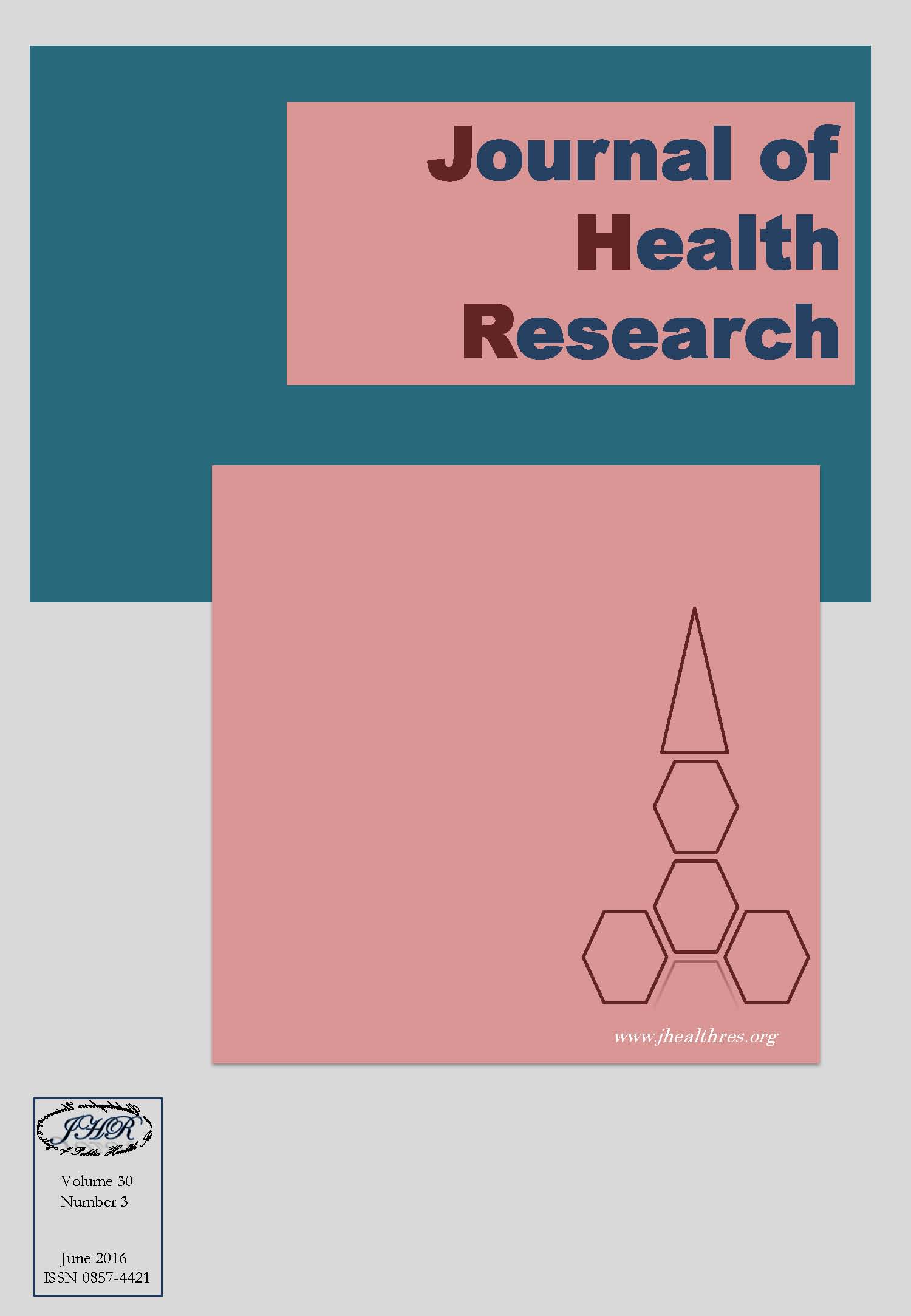Seroprevalence of Leptospira Spp. in Cattle and Dogs in Mahasarakham Province, Thailand
Keywords:
Leptospirosis, Seroprevalence, Cattle, Dog, ThailandAbstract
Background: Leptospirosis is a zoonotic disease that is caused by the spiral-shaped bacterium Leptospira spp. It is distributed worldwide and classified as an emerging infectious disease in humans and animals. Many serovars are carried by a wide range of animals, all of them are capable of causing illness in humans. The objective of this study was to determine the seroprevalence of Leptospira spp. in cattle and dogs in Mahasarakham Province, Thailand
Methods: This study was conducted in Non Rasi sub-district, Borabue district, Mahasarakham province, Thailand. Blood samples were collected from 40 cattle and 55 dogs. All samples were tested by microscopic agglutination test (MAT).
Results: Five cattle (12.5%) were positive by MAT; all of them were identified as Leptospira serovar sejroe while 6 dogs (10.9%) were positive by MAT and all of them were Leptospira serovar canicola.
Conclusion: This result is considered as evidence-based information to indicate that several pathogenic serovars are circulating in the livestock and domestic animals in the study area. These animal reservoirs could also potentially contact humans in a fashion similar to rats and other rodents, which are the primary reservoirs. This could increase the risk of human leptospirosis in the study area.







